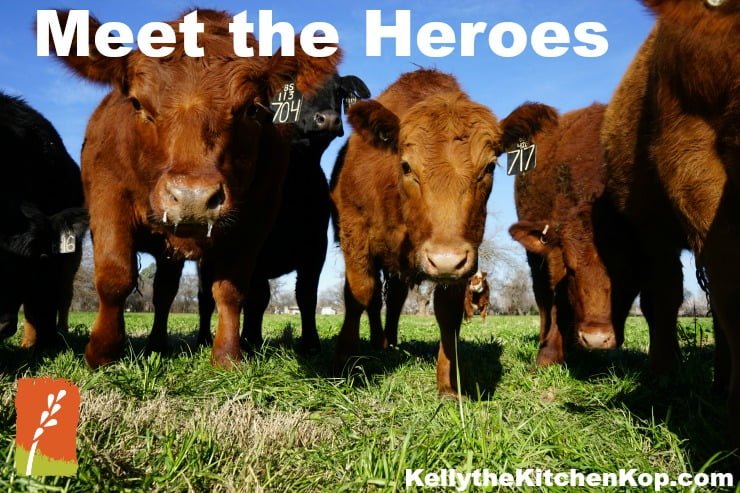
I'll bet you didn't know that there really is an all-in-one solution: regenerative grazing for healthy land, soil, water and food…
I have to admit that in the past I've been interested in sourcing healthy foods for my family more than I've cared about issues surrounding the earth. That sounds quite ignorant now that I know how connected everything is, and how it goes way beyond the mouths we feed, but I certainly never thought about “regenerative grazing”. If we care about the health of those in our circle who aren't quite there yet when it comes to real food, or if we want to help the poor among us, what I'm excited to tell you today is that this regenerative grazing issue has the power to trickle down and affect everyone!
Regenerative grazing means that, through good management, land will improve in fertility, productivity, and wildlife habitats while still growing high-quality nutrient dense products for human consumption.
The Savory Institute is bringing it all together to simplify how we can impact our world right where we are, whether we're a consumer, a brand, or a producer:
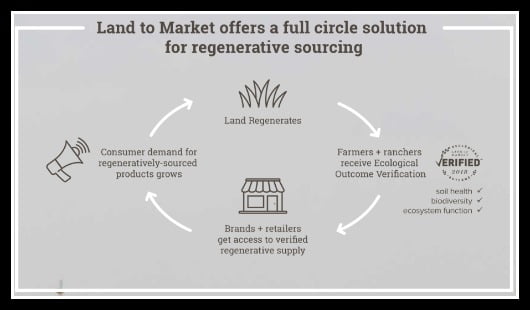
The Savory Institute is launching a new Land to Market program this week at Natural Products Expo West in California.
Many of you probably know my good friend, Chris Kerston, he's Director of Market Engagement at the Savory Institute, and here's how he describes it:
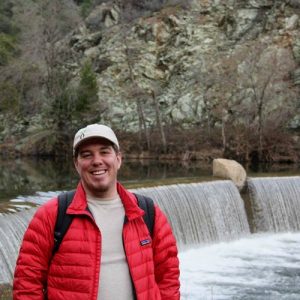 “Land to Market is creating a whole new opportunity for consumers to play an active role in healing the environment. This scientifically-based verification takes assumption out of the equation and quantifies actual outcomes on the land. This program dovetails beautifully with existing practice-based certifications such as organic, grassfed and grass-finished, and welfare programs – but it fills a gap in the marketplace of measuring what actually happens on the land as a result of how livestock are managed.
“Land to Market is creating a whole new opportunity for consumers to play an active role in healing the environment. This scientifically-based verification takes assumption out of the equation and quantifies actual outcomes on the land. This program dovetails beautifully with existing practice-based certifications such as organic, grassfed and grass-finished, and welfare programs – but it fills a gap in the marketplace of measuring what actually happens on the land as a result of how livestock are managed.
At the same time, we'll be populating a global database of impact, proving the case for properly managed grassfed livestock as a solution for many of humanities biggest problems. By purchasing products that are verified to be healing the land, the cliche' of voting with your dollar is brought to a whole new reality, and shoppers will be empowered with transparent information like never before!“
Here's how I explain it in “Mom terms”:
- For producers, this new program will allow good farmers and ranchers to get credit for all the amazing work that they do and to prove that they are healing their land through proper stewardship, without being bogged down in paperwork and expensive certifications.
- For brands, it will make it easy for them to find the producers doing the best job around the country and source from them. (This will also encourage other producers to up their game and if they're struggling with anything, Savory offers training and consulting to help producers become regenerative.)
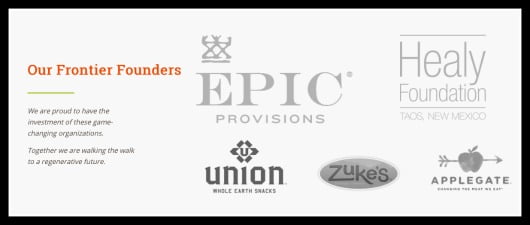
- For consumers, check out the brands supporting the development of this program and changing their supply chains to buy from regenerative producers — they are leading the pack in this movement! These brands are working closely with the Savory Institute and executing the steps necessary to have verified regenerative products on shelves within the next year. Keep paying attention and let's vote with our dollars — look for this seal:
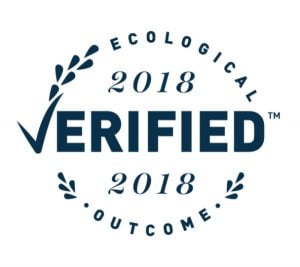
Us Moms are already DOING THIS, and we really can keep it going!
When I first began on this crazy journey to feed my family food that not only tasted really good (we're not talking about tofu and bland veggies here) but that would keep them well and help them thrive, at first it was a dry desert out there. There were very few organic, non-GMO, or other real food options. I had to drive clear across town to the farm, or to the health food stores, and make so much from scratch.
But we've already made a HUGE difference with our voting dollars…
If I need to, now I can find things like organic locally made fermented bread. And there is even whole-milk organic grass-fed yogurt on the shelves at the store one mile from us! That's not all. The no-GMO label is everywhere these days, and my local grocery store can barely keep the organic foods restocked fast enough before they're gone again.
It's not just corporations who are noticing what all of us have demanded with our food choices.
Even many of those who mocked me 10 years ago when I started writing things like, “Butter is good for you!” or, “There are important reasons for why I buy mostly organic!” have slowly started taking notice and are coming around to the difference that it makes for our health. I love that many of my family and friends are on board now! (And my friends who were educated before I was think it's funny that I used to think they were the crazy ones, lol.)
Now by looking for this new label, we can step it up and demand even more for our dollar, we can have it all — we can nourish our families and help save the world at the same time!
Now watch some videos for more inspiration (or catch my notes/highlights below if you want to skim)…
First, Chris Kerston explains why cattle will save us (this is a short version):
You guys, our Creator is so smart, obviously God knew what He was doing when He put these animals on the land to graze. The regenerative grazing system works, and conventional farming has messed it up — understatement of the century. Chris explains it all so well — this is the heart of what it means when we talk about cultivating nutrient dense soil!
Here's a little longer video, but gives the more complete picture, including info on the new Land to Market program at minute 26:50:
Video excerpts/highlights (more videos and info below):
- We live in the most ecologically illiterate civilization that has ever existed. The collapse of soil as a basic resource led to the decline of societies for the last 12,000 years.
- We went to this tremendous cheap food policy. These are the consequences of what we did to get cheap food. When a culture worships at the altar of fatter, bigger, faster, cheaper, that food system mantra will express itself in the population.
- It's not really providing nutrition to us, it's providing an illusion of nutrition.
- What have we handed our children? How much of a measurable failure of a society have we been? We've got a helluva piece of work on our hands here, and as far as I'm concerned, we haven't got a minute to lose, we've got to get going.
- We need big agriculture and small agriculture and we need to work out how we sustain civilizations, if we don't, the future is grim indeed.
- If we get angry and say, “I don't want that, I do want this, it shifts.” We vote with our fork.
- Consumers absolutely have a voice and need to show that it matters to them.
- My challenge to them is to truly be informed. Ask questions and if you don't get the answers you want, investigate why you're not getting those answers.
- We all have the power through our choices of what we eat to send a signal to the marketplace, to the business owners, that THIS is what we want to eat. We want to eat a product that regenerates our soil, that regenerates our economy, regenerates our social fabric, that is what we want, the same with what we wear!
- This new program prevents the producer from getting certification fatigue and the consumer from getting label fatigue.
- This gives producers a way to PROVE they're better, to differentiate them in the marketplace. Other standards and certifications are out there but they're burdensome with a lot of paperwork or other hoops to jump through to maintain all the certifications.
- This will connect regenerative land managers (our favorite farmers) with the conscious, educated end user. (That's us!)
- It's completely scalable, it uses tools you already have in place. We're not telling people to go buy livestock or change what livestock they have, or go plant grass or go put in irrigation systems. We're saying use the tools you already have, just manage them differently so it doesn't cost money, it makes money, doesn't require any technology or infrastructure, it's completely scalable to the size and property you're working with, and the crucial one here is that it has the ability to positively impact vast areas of the world that are suitable to little other production other than grazing. But it's so much more than rotational grazing… (There's more toward the end of this post to explain that.)
- Brands WANT transparency and to communicate better with their consumers.
- We'll get Local Hubs more involved in helping with all of this near them.
- This will displace existing conventional livestock supply chains (factory farms) because they'll have less relevance in the market place (we're not buying that crap anymore!)
- I know that I have to feed the soil primarily in order to have clean air, clean water, and really some good food. Now how quick can we turn around our practices and preserve the soil so we have a sustainable system for the long term?
- It took me some time to realize the thing that: my animals are my tool, to make it grow, to make photosynthesis go. You can use the same tool to be destructive and you can use that very same tool to be beneficial, and grazing is no different.
- These guys (cows) are friends of mine. I think they've been largely misunderstood and there's another story to be told here. I think they're actually heroes and they're saving the planet.
What you can do right now:
Join Savory’s email list and then keep your eye out on their Youtube channel for a video of their Land to Market session at Expo West that comes out soon.
Join the movement and be part of the regenerative grazing solution for a healthy world!
More you might like:
- In case you're wondering, Chris explains that Holistic Management and Planned Regenerative Grazing are different than just rotational grazing: “Rotational is a step in the right direction, but holistic management involves proactive planning and includes additional layers that take into account life goals, financial context, resources available to you, and even social/cultural factors. Here is a short video of Allan explaining it:“
- More info on the basics from Chris Kerston in 2 super short videos:

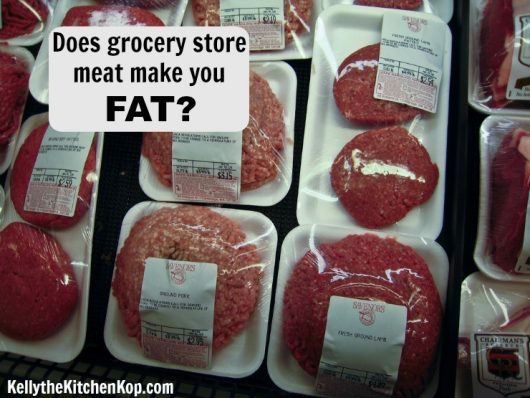
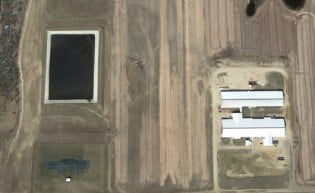
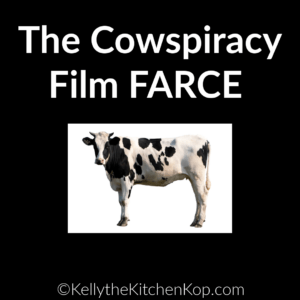
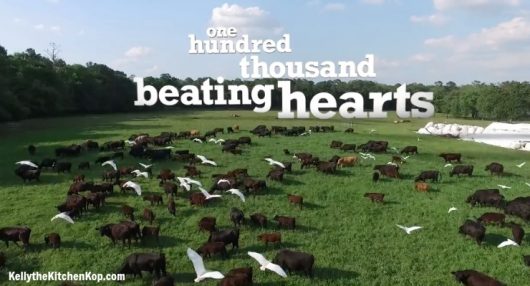

Ali says
Kelly, this is great news and an important piece to share. I’m hoping my homesteading group will let me share this, if not, I’ll at least mention Chris’ name, Savory Institute and the Land To Management project. This is what we need to do to help feed the world. God bless this man and his project!
KitchenKop says
I know, Ali, I hope this gets shared a lot because people need to know this stuff!
Kelly